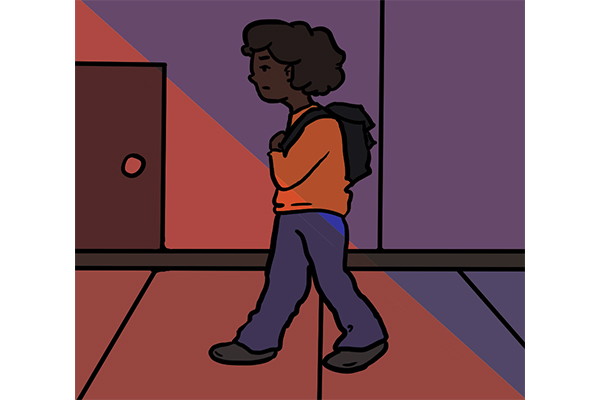The UT Police Department will keep the red and blue lights on squad cars lit overnight to increase visibility in West Campus, according to a Saturday UTPD tweet.
Peter Scheets, UTPD assistant chief of police, said the increase in robberies in West Campus prompted the decision to keep “wig wag” lights on overnight to deter crime and offer enhanced visibility for students. “Wig wag” lights are the rear-facing red and blue lights on police vehicles that are difficult to see unless the car passes you, Scheets said.
“This is not a new practice,” Scheets said. “We’ve done this intermittently over the years during periods where we have a high call volume or high crime activity.”
UTPD employed this technique following the murders of students Haruka Weiser and Harrison Brown to offer increased security and decrease crime rates, staff officer Lt. Wayne Coffey said.
“This was a way to reassure the community but also signal to people that are in the neighborhood and wanting to do criminal activities that we’re also in their presence,” Scheets said.
Government sophomore Teniece Evans said she disagrees with this decision as it negatively affects Black, Indigenous and people of color, and the resources being used could be re-allocated elsewhere.
“People of color, Black students especially, have a general distrust in police officers, so the idea of having lights on is a slap in the face with everything that’s going on,” Evans said.
Evans said she believes resources would be better spent increasing lighting in dark areas and putting measures in place that prevent the issues from the start.
“Why are we paying police to stay in alleys and intimidate (Black people and) people of color when you could re-allocate those funds toward setting up street lights in dark alleys where students are walking at night, where students are getting robbed?” Evans said.
Economics senior James Peterson said in a Twitter message he supports the decision to keep lights on overnight as it could help people feel safer.
“I believe it will make citizens feel safer when they’re out and about at night and hopefully serve as a deterrent for crime as well,” Peterson said.
Scheets said although the response to the new policy has been generally positive, UTPD is open to hearing concerns about the lights negatively affecting Black, Indigenous and people of color. Scheets also said the experience with UTPD will differ from that of the Austin Police Department, so students are able to make complaints if an issue arises.
“The feedback we’ve gotten has been overwhelmingly positive, but we welcome hearing from members of the community if they have concerns or opposition,” Scheets said.





















